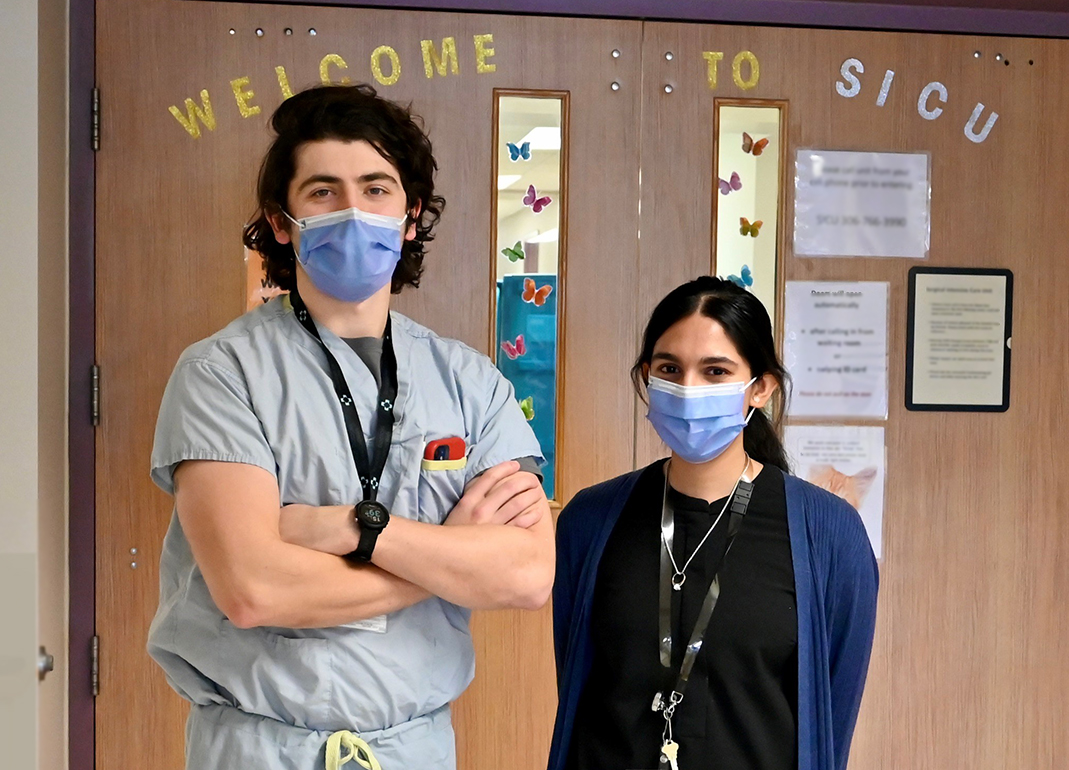
When Can ICU Patients Be Discharged Home
Patients in intensive care units often move to a regular ward before they're discharged and sent home. Increasingly, hospitals are skipping that step, sending a handful of ICU patients directly home.
By RESEARCHERS UNDER THE SCOPE, Office of the Vice-Dean ResearchListen to all episodes of the Researchers Under the Scope podcast.
Researchers Under the Scope is produced by the Office of the Vice-Dean Research in the College of Medicine.
"We were really looking at analyzing the data of safety in terms of discharging patients home safely in terms of outcomes such as mortality, or a re-admission to hospital," said Dr. Ryan Donnelly (MD), who's currently finishing his first year of residency in Regina.
He said for young patients without serious co-morbidities, direct discharges to home are an option.
"If you have a patient who's in the ICU who has been waiting for a ward bed and ends up getting well enough to go home, it kind of started that way," he said.
"The data analyzing it came after the practice started.”
Under the supervision of Dr. Eric Sy (MD) and Dr. Vincent Lau (MD), Donnelly teamed up with Sehar Parvez, who's now in her fourth year of medical school at the University of Saskatchewan's Regina campus.
Their team’s work was first published in September 2021 in the Canadian Journal of Anesthesia, with a subsequent article published in January 2023's journal of Critical Care Medicine.
Although the Covid-19 pandemic limited any direct interviews with patients, Donnelly and Parvez started by combing through more than 8,000 papers that mentioned direct-to-home discharges.
"The evidence that we've gathered from my meta-analysis is that it can be safe," said Donnelly. "It's something that is going to be happening more and more.”
Their next step was to put together a questionnaire and sending it to healthcare providers across the country. They received more than 350 responses.
"About a third of healthcare providers didn't know that there is an increase in the direct discharge home from the ICU," said Parvez. "I thought that was very interesting.”
She and Donnelly found critical care providers were more likely to feel comfortable discharging an intensive care patient directly home, especially compared to healthcare workers who weren't as familiar with the practice.
Parvez went on to analyze outcomes for 120 patients who were in the hospital between February 2020 and May 2021. Each was discharged directly home after spending time in the critical care unit.
"We found that 32% of our direct discharges to home at that time were from substance overdose," said Parvez.
She and Donnelly studied outcomes for patients, watching whether they had to be re-admitted to hospital within 30 days to a year.
Parvez said the practice is safest when a patient has health care support workers checking in with them, documenting and communicating changes immediately to their family doctor.
In this episode, both Donnelly and Parvez share what it was like to be a medical school student during a global pandemic, as they learned to do research under the supervision of clinicians at the Regina General Hospital.
"We had to learn very quickly though how to do research in a virtual environment," said Parvez. "We didn't know how to use Zoom right away. We didn't know how to share a screen right away,
She now is looking at internal medicine as a potential career path.
"It informed my desire to want to work on being a mentor, being an educator, and continuing to practice evidence-based medicine," said Donnelly, a family medicine resident. "It was certainly rewarding."
